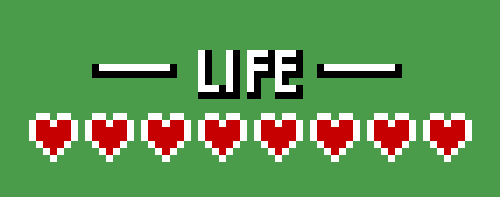You may or may not be new to games, but if you’ve purchased Deliverance (or are considering it), let me tell you up front: Deliverance is a challenging game.
If you’re reading this for some timely *spoiler free* advice so the demons don’t mercilessly wipe the floor with you in your very first game, you’ve come to the right place!
Mighty angelic warrior, do not be afraid of the demonic foes ahead. Here are a few Courage-building tips for you:
1) Start In The Right Place

If you’re opening the box for the very first time, after reading the rulebook, you have your first meaningful decision to make: What mode will you use to first play the game?
My #1 recommendation is to start with the Campaign for both veterans and newbies alike.
Players that are entirely new to this sort of game (tactical adventure RPG games), should begin their entrance into Deliverance with Campaign Mission 1. This mission only takes 20-60 minutes to play, even at a full player count (including learning time). You really only need to read the first half of the rulebook to play Mission 1, because you won’t have to deal with the Darkness, leveling up, Princes, set-up for multiple battles, Talents, Saints, or Treasures. We designed the campaign to help ease you into the rules and learn the more complex bits a little at a time. The first mission deals with combat, so you’ll get to bond with friends and family by righteously kicking demon butt for an hour. If you finish quickly, you can then jump immediately into Mission 2, which will take 30-60 minutes and will likely prove to be your first real challenge in the game!
Players of intermediate skill level in board games, Tabletop RPGs, or RPG video games should begin with Campaign Mission 2, even if you plan to play the game at game night. If one person is going to read the rulebook (if you’re reading this, that person is probably you), that person (you, aka the human rulebook for everyone else) should first play a game that has some challenge without also requiring an extensive knowledge of each area of the game. This way, you won’t need to look for many answers in the rulebook during your first game, AND you’ll have a blast. Let’s be real — if even the human rulebook (you) can have fun on the first game, then everyone wins!
Veteran gamers that have played a ton of board games and RPGs have more flexibility when starting the game. It’s sometimes hard for me to recommend a starting position to these folks, because I’m primarily concerned about one thing with these sorts of people: If the first game feels too “easy,” they might just lose interest and put it back on the shelf. Let me be clear: Deliverance can be one of the most challenging games you’ll ever play, but you have to invest a bit of time to figure out the difficulty level in which you start to feel challenged. The Campaign (or the Campaign Challenges) will surely crush you eventually, but for people like this, they might bring the game out on game night — in cases like that, you cant spend the time to play a bunch of Campaign missions (and don’t you dare skip ahead 😆). Unless you’re playing with a dedicated group of players, you should start with a Skirmish game first. My recommendation for you, if immediately playing with the full mechanics of the game isn’t a scary thing, is to play your first Skirmish game on Heroic difficulty. Once you die (or win with a nail-biting finish), you’ll thank me for the great time (I think).
2) Spread The Demons Among The Players
This headline may sound creepy, but it’s really not meant that way (and the demons in the box aren’t real) — this game is a “Christian Fantasy” game about angels, demons, and saints after all.

I’m talking about the actual demon character cards. Each player will choose an angel to play at the beginning of the game, and the angels will work together to defeat the demons. The demons are controlled by the game, but the players act as their handlers.
This isn’t as much about saving time as it is preserving the cognitive load of the player acting as the human rulebook. Instead of one player (you) controlling each of the demons, let all players control one demon each. This way, the human rulebook (you) doesn’t have to do all the reading, and more importantly, it really helps players get into the game and quickly learn how it works!
3) Don’t Forget To Do The Thing!
New players trying to learn and play the game at the same time have a lot to process over the course of their first game. Most of this is easily coordinated by that handy quick reference card, but there are a few common mistakes that I have seen in my several hundreds of plays of Deliverance with new players. Here they are, in no particular order:
Don’t forget about the Pray test! The Pray action is the one action that is shared in common by all angels. It also happens to be what I personally consider to be the most complex action for new players to process. You have to spend an action, gain a Courage, draw a Prayer card, and finally roll a test (7+). Because there are a number of things to do, and you get to draw a card that likely gives you something really interesting, it’s fairly common for players to forget the Pray test. Make sure you roll your 2 dice (Catan style) for that test *before* reading that fancy card you just drew!
You must still pay the cost of a “Free” Action! Okay, this might not be the *perfect* name for a thing that isn’t always free (I felt calling it “mostly free action” wasn’t as cool). The big deal about these skills is that they do not count against your 2 action limit during your angel’s turn. You have 2 Action tokens that you flip over to mark when you use an action (marked by an hourglass icon), but the “free” action (marked by the hourglass with wings) doesn’t require this. You must first pay any other associated costs, which is typically a Courage cost, before you use the skill. That will always be accompanied by a -X Courage (gold fire icon) or contain the required payment in the text itself.
Each demon uses the same action! Each demon type uses a decision tree to determine the actions they take. Some skills always activate (marked by the Lightning Bolt icon), while demon actions (marked by the hourglass icon) are determined by a dice roll. Demon minions use the same action (with the lone exception of Masked Evil). That means they each use the same skill, one after another. You don’t need to roll a dice for every minion of that type — just roll once, and each demon of that type uses the same skill.
4) Choosing The “Right” Character For You
I’m not going to give you a character for pros / newbie guide here. This is a bit of advice I give to all of the players I have ever sat down with at the table for a game of Deliverance, so I thought, why not share it with you before your first game?
There is no “best” angel for newbies, and there is no “worst” angel for hardcore pros. Each angel has a totally custom toolkit that feels different from the others. Most angels are new-player-friendly, and all angels have a myriad of ways to beautifully express your skill. Because of the high degree of customization that happens through a game of Deliverance, those players that want to play in support, damage, tank, mage, etc. roles can find a way to play their favorite style with any of the characters!
That said, some angels are better at those roles than others, and there are several great ways to discern as a player which angel you *should* play if you enjoy a particular style of play.
- Choose based on the character art. It sounds simple, but the art of the angels really goes a long way to show what they are good at! If you want to stand in the front lines and smash, or stand far back and heal, let the angel character art be your guide!
- Read the summary on the back of the character card. Each angel has a lot of rich story and helpful stats on the back of their cards. They have a gem rating in areas like attack, defense, support, and difficulty level, and they have a general summary of their playstyle. They even have a helpful build for new players on the card if you’d like a little guidance for your first game!
- Here are my personal role recommendations. What I love about the list below is that you can absolutely play these angels in any role depending on your choices. That might be a really hard thing to do, but it’s not impossible if you want to go against the grain:
Tank / Defender: Sardius, Michael, Taolu, Uriel
Fighter / Bruiser: Uriel, Michael, Christine, Mikko, Sardius
Rogue / Assassin: Mikko, Gabriel, Azrael, Taolu, Uriel
Mage / Caster: Christine, Azrael, Shula, Gabriel
Support / Healer: Shula, Gabriel, Sardius, Azrael
Each angel has their own strengths and weaknesses, which you’ll have to discover by playing the game! You may read more about the angels here!
5) Avoid These Common Blunders
This is your first dip into “strategy” of Deliverance, but we’re going to keep it light for the newbies… because those are the folks that most often make these mistakes. If you find yourself doing any of these things, reconsider!
Movement: If you run from the fight, it might not help. If you run right into the middle, you’re probably going to get swarmed and get squished into shiny angel goo by grumpy demons. Instead, move into the fight by fighting along the edge of the battle in the early rounds (so you can still lay the smackdown, but you are still keeping other foes at a safe distance).
Darkness Cards: If you ignore them and try to punch your way to victory, you will experience crushing defeat every time. You can’t ignore it Darkness, but you have limited actions! What is an angel to do?
If you want to balance your limited actions in dealing with Darkness, you can focus on casting down face-up Darkness cards whenever possible. Some of those cards will decimate your team if you let them linger for too long. Being dealt 1 damage per round doesn’t seem like much, until it’s round 5, and you’re wondering where all your health has gone!

Saints: If the saints are sad, you’re sad. Don’t neglect them! Make it a priority to protect at least half of the Saints early! This might mean you move headlong into demon foes, but if it’s for the children…

Battle: Defeat that low-health minion! It is advisable to not let demons survive another round if you have the power to finish it! You get XP and prevent damage that foe would have dealt to you later. You might fall behind against the Darkness, but that is the tug-of-war you should embrace if you wanna WEEN!

Cooperate: Deliverance is a cooperative game, so discuss your plans with your team! You have a number of meaningful decisions you will make on your turn, but you can’t fight this battle on your own (even the soloist has the Intercessor)! Work with your team to hatch your grand plans. But remember, it’s not always a bad idea to deviate from what your team (or that one annoying and noisy dude) thinks you should do — One player’s choices will often cause other players to change their moves!
Want More?
As a final thought before recommending further reading, I love that plans are often forced to change in Deliverance. The demons or Darkness cards will cause you to make emergency adjustments to your strategy. Unfortunate (or awesome) dice rolls might force your plans to change. But my favorite case above all are when my fellow angels decisions cause my plans to change. You’re going to have a bunch of great options to make, and your choices will cause your team to re-evaluate their moves!
If you’re itching for further reading, check out this spoiler free strategic advice: 5 Tips To Boost Your Deliverance Skill
Or if you want to read more about the characters you’ll be playing, check out the angels of Deliverance!
